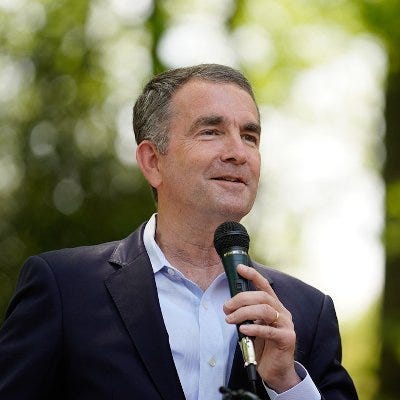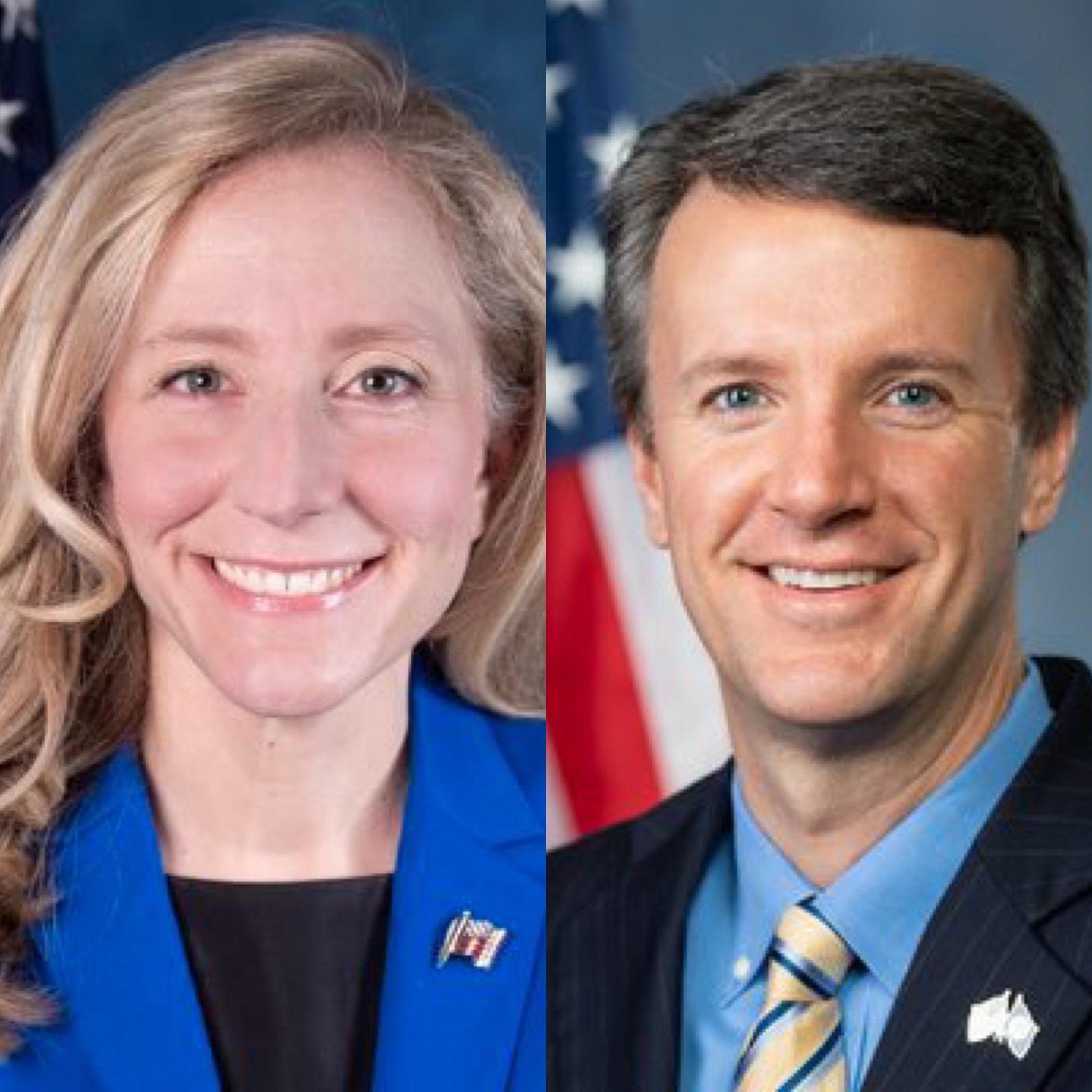Virginia Senate Democrats ask Supreme Court of Virginia to disqualify GOP special master redistricting nominees
The redistricting process continues to be complicated.
This is a daily newsletter covering Virginia politics from top to bottom. Please consider supporting non-partisan, independent news by becoming a paid subscriber today.
State Senate Democrats sent a letter to the Virginia Supreme Court asking them to disqualify the Republican special master nominees who are being vetted for the job to draw Virginia’s legislative districts.
The state Supreme Court is choosing special masters to draw the legislative lines after the bipartisan Redistricting Commission collapsed leaving the task at the feet of Virginia’s highest court. Leadership from both parties in the General Assembly submitted three names for consideration. The court will choose one person from each list to draw the maps.
The Senate Democrats have a problem with all three Republican nominees, however.
“On behalf of the Senate Democratic Caucus, I write to advise the Court of the significant, disqualifying conflicts of interest of the three special master nominees offered by the minority caucuses of the Senate and House of Delegates,” Senate Majority Leader Dick Saslaw wrote in a letter that was sent to the Supreme Court of Virginia Monday.
The Senate Democrats cite Section 30-399(F) of the Virginia Code and the Virginia Supreme Court’s Redistricting Rule 2(b), which says “the persons appointed to serve as special masters should have the requisite qualifications and experience to serve as a special master and should have no conflicts of interest.”
Thomas Bryan, one of the Republican nominees was paid $20,000 by Virginia Senate Republicans for consultant fees in September. Another Republican nominee is Adam Kincaid, the current Executive Director of the National Republican Redistricting Trust. He has previously worked for the Republican National Committee, the National Republican Congressional Committee, and the Republican Governors Association. The final Republican special master nominee is Adam Foltz; he is a Republican operative who worked on the map-drawing in Wisconsin in 2010 where a federal court found partisan gerrymandering.
"Courts are supposed to be free of politics—which is why we enacted conflict of interest provisions in the enabling legislation for the nonpartisan redistricting constitutional amendment, and the Republican caucuses have asked the Supreme Court of Virginia to effectively sanction partisan map drawing,” said Senate Democratic Vice-Chair Scott Surovell.
Republicans provided no immediate response to Virginia Scope.
The special masters will be tasked with creating the district boundaries for Virginia’s House of Delegates, Senate, and congressional delegation. Virginia has already missed having one election under new lines, last week, with the delays in redistricting that first began under the Trump administration. There is currently a federal lawsuit from Paul Goldman seeking to force House of Delegates candidates to run again next year. It is unclear where that lawsuit stands at this time, but if successful, it would mean House of Delegates candidates in Virginia would have to run three years in a row; 2021, 2022, and 2023.
This is a developing story.
Northam leads trade and marketing mission in Europe
Governor Ralph Northam is taking an international trip for a trade and marketing mission with members of his administration this week. The governor and his delegation will visit Belgium, Spain, and Germany while participating in 20 meetings according to an announcement from his office.
“Virginia has an incredible track record for attracting international companies,” Northam said in a press release. “Our inclusive policies, strong workforce, quality infrastructure, and access to the world-class Port of Virginia make the Commonwealth an ideal location for companies looking to move to the United States.”
Northam’s Chief of Staff Clark Mercer, Secretary of Commerce and Trade Brian Ball, Secretary of Agriculture and Forestry Bettina Ring, and representatives from the Virginia Economic Development Partnership and Virginia Department of Agriculture and Consumer Services are accompanying the governor on the trip.
The announcement from the governor’s office says that the delegation will be participating in foreign direct investment meetings including two business roundtables.
The governor will visit the Basque Country in the northern region of Spain. They just signed a Memorandum of Understanding with Virginia this August to develop and implement technologies related to renewable energy, energy efficiency, and storage.
“I look forward to building and strengthening relationships this week,” Northam said Monday.
Spanberger, Cline introduce Child Rescue Act
Two of Virginia’s members of Congress introduced legislation aimed at helping children who are suffering abuse. Rep. Abigail Spanberger (D-VA07) and Rep. Ben Cline (R-VA06) introduced the Child Rescue Act, a bill that they say will create a national commission to study proactive strategies and identify the resources needed to locate and rescue children from sexual exploitation and abuse.
“The sexual exploitation and abuse of children is an epidemic in our country. We must consider every avenue to protect America’s children and prosecute the criminals who commit these horrors,” Spanberger said in a statement Monday.
“For several years, I have supported the great work of the Bedford, VA-based Southern Virginia Internet Crimes Against Children Task Force, one of over 60 task forces combating online child predators across the country,” Cline said in the same announcement as Spanberger.
In addition to Spanberger and Cline, the legislation is being co-sponsored by Reps. Brian Fitzpatrick (D-PA01), Burgess Owens (R-UT04), and Debbie Wasserman Schultz (D-FL23).
In 2008, President George W. Bush signed the PROTECT Our Children Act into law, which required the U.S. Attorney General to create and implement a National Strategy for Child Exploitation Prevention and Interdiction and to appoint a high-level official to coordinate that strategy. Additionally, the Act required that an updated strategy be submitted to Congress on a biannual basis.
However, according to a press release from Spanberger, in the 13 years since the Act became law, only two such reports have been developed. With limited resources, U.S. law enforcement agencies are increasingly unable to adequately prioritize and respond to the rapidly growing number of Cyber Tips about online abuse and are unable to proactively work cases of child sexual exploitation in their own jurisdictions.
More News:
Charlottesville: Emotions flare during contentious rally trial testimony
VEC transitions to new IT system, unemployed face Monday deadline to certify last week's claims
Trial based on UVa research shows low-cost drug helps keep COVID patients safer
International flights come to Dulles as U.S. eases travel restrictions
Charlottesville's newly announced interim city manager responds to questions about his track record
Surf enthusiasts want to create a surf museum at the Virginia Beach Oceanfront






